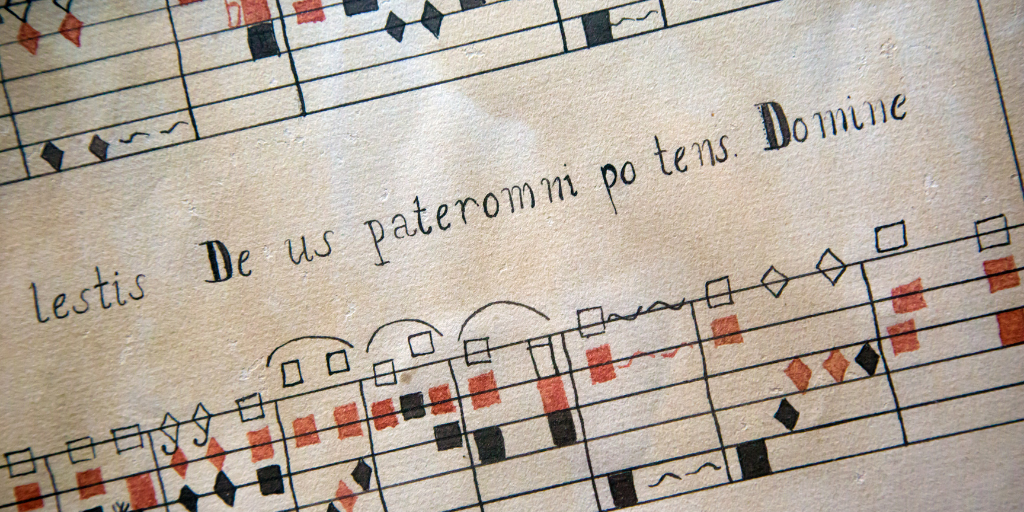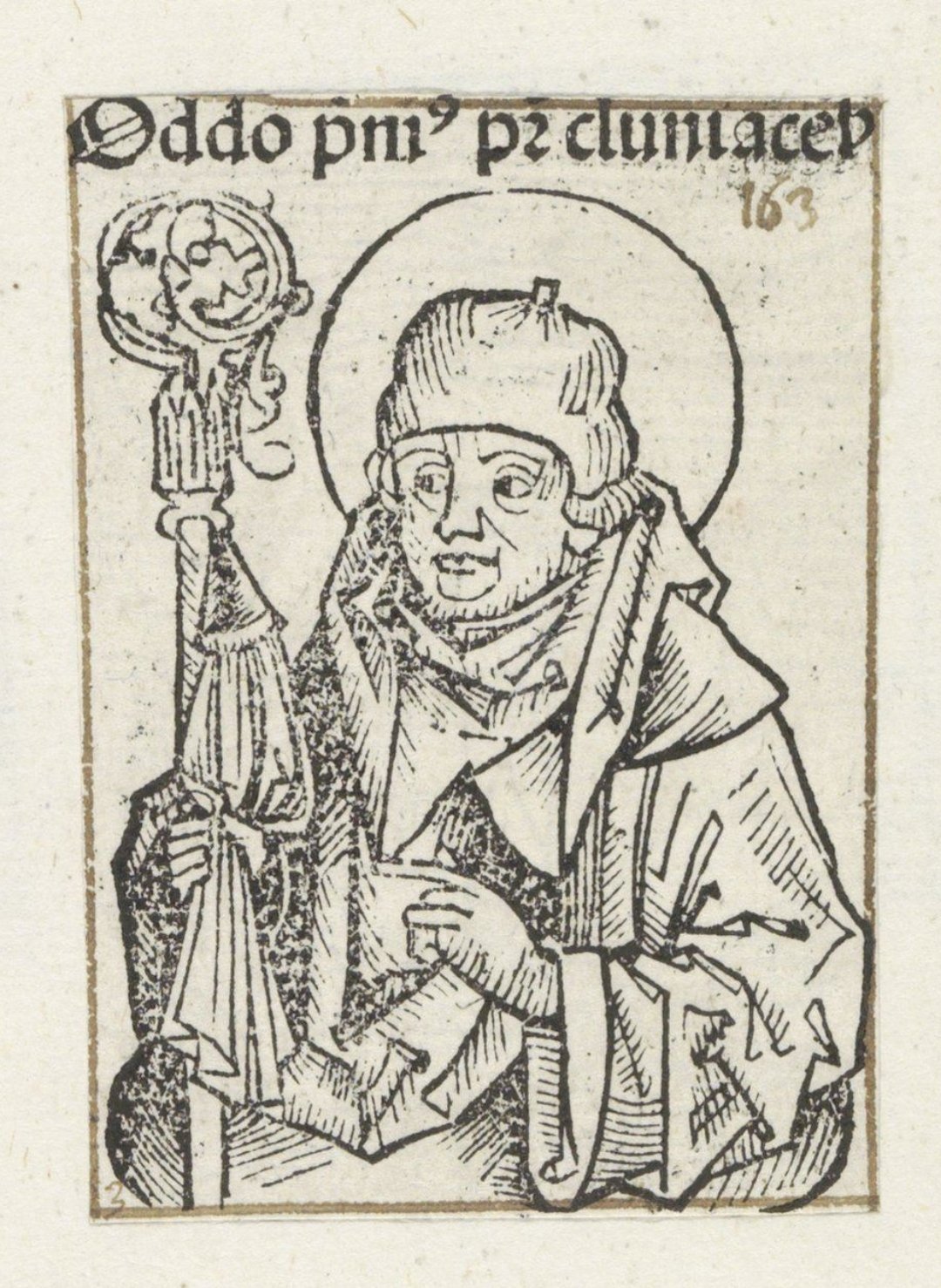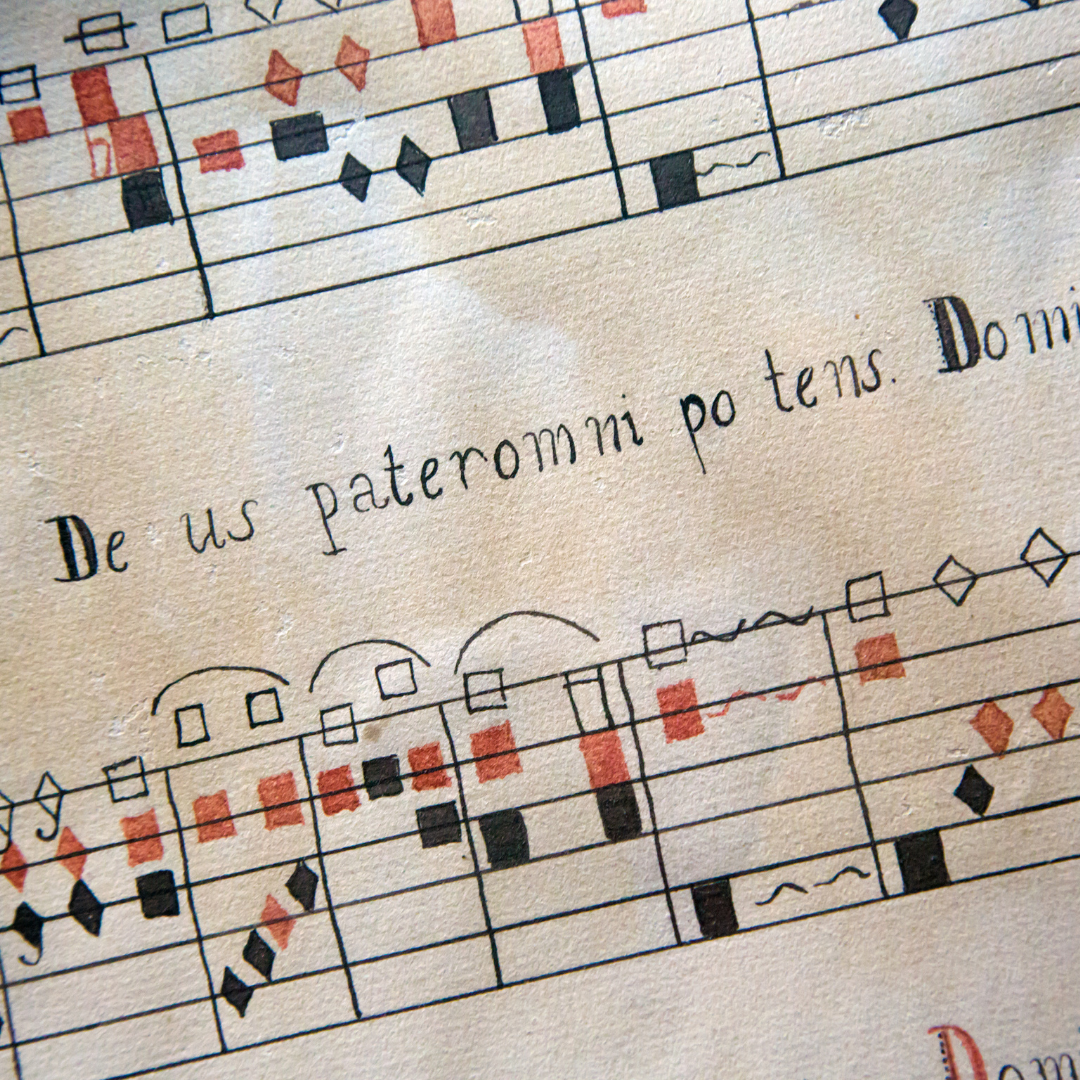
Margaret Rose Realy, Obl. OSB, tells the story of a Benedictine saint known for his scholarship, generosity, and sense of humor.
November 18 is a big day, the celebration of the Dedication of the Basilicas of Peter and Paul. Hidden among the celebrations is the feast day of a Benedictine saint, Saint Odo of Cluny, venerated by both the Eastern Orthodox and Catholic churches.
A beloved saint for those who write, are active with music or gardening, he also had a sharp sense of humor that brought great joy to his Brother monks.
Saint Odo was a well-educated man from nobility. As an infant his parents secretly dedicated him to Saint Martin of Tours — and forgot to tell Odo! In his teens while being trained as a warrior in the court of Duke William I, he discovered his parents promise to Saint Martin, and also learned of the Rule of Saint Benedict. He promptly left court to study the canonry of Saint Martin and lived an eremitic life for several years.

Typical of nobility he had manuscripts, lots of manuscripts — we are told over 100 of these expensive books! Manuscripts were hand written, primarily by Benedictines, and were religious books of prayers and psalms including antiphoners of music, or concerned with horticultural which included herbals. Odo, when he was around 30, brought those books with him to Baume Abbey where he became a Benedictine monk.
Saint Odo was a skillful writer, and as noted by Pope Benedict XIV, an important writer in the middle ages who was, “a true spiritual guide both for the monk and for the faithful of his time.” His writings, much like Saint Benedict’s were firm and yet generous. He was a beloved and energetic abbot, with a wry sense of humor as he guided those entrusted to his shepherding. One biographer wrote that "Abbot Odo's words were full of joy [and] his merriment instilled in our hearts deep joy."
Saint Odo loved music and would often ask the children he met along the way to sing for him, and would reward the child some small gift. His Benedictine brothers knew he was a music theorist and asked him to develop a simple rule of music that would help make religious music easier for the layman. The saint then created a book that helped simplify the diatonic scale, and this theory was used throughout the Middle Ages.

Fascinatingly enough, his patronage is not for writers or musicians, but for rain. Legend tells us that as an archbishop he began restoration of the Canterbury cathedral, and during the three years of repairs no rains would fall during the hours of their labor.
A favorite teaching from Saint Odo — and one to keep ever before us — reflects his kindness of heart, and solid words of Christ: that the people we snub or the poor we refuse will greet us at heaven’s gate when we die. With that in mind, imagine the person we have rejected most standing beside Our Lord. That thought alone should make us go in great haste to reconcile with anyone we have cruelly offended.
Let us pray to Saint Odo that we keep our wit about us in such a way as to instill joy in others.
Copyright 2021 Margaret Rose Realy, Obl. OSB
Image: Canva Pro; Odo of Cluny, Rijksmuseum, CC0, via Wikimedia Commons;
About the Author

Margaret Rose Realy, Obl. OSB
Margaret Rose Realy, Obl. OSB lives an eremitic life and authored A Garden Catechism, A Catholic Gardener’s Spiritual Almanac, A Garden of Visible Prayer: Creating a Personal Sacred Space One Step at a Time, and Cultivating God’s Garden through Lent. An award-winning author, Margaret has a master’s degree in communications, is a Certified Greenhouse Grower, Master Gardener, liturgical garden consultant, and workshop/retreat leader.


.png?width=1806&height=731&name=CatholicMom_hcfm_logo1_pos_871c_2728c%20(002).png)
Comments